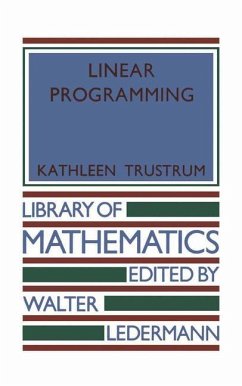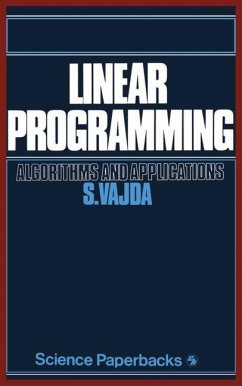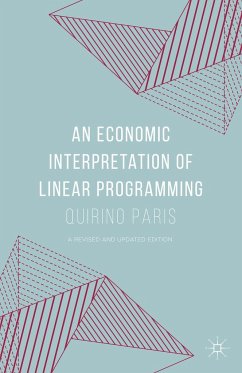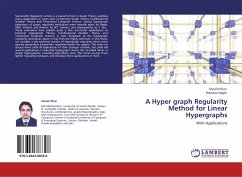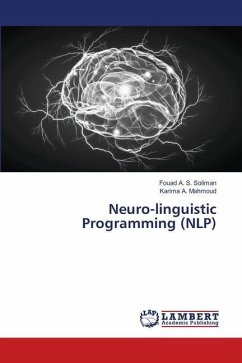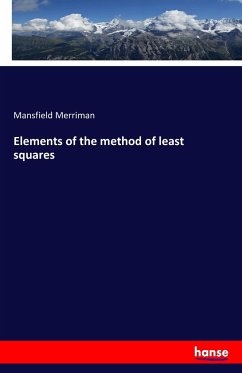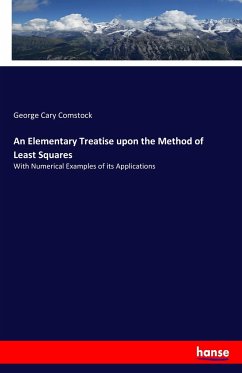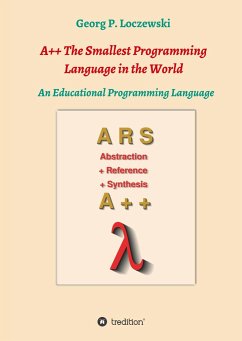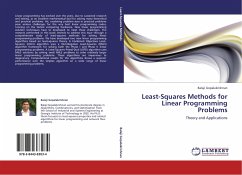
Least-Squares Methods for Linear Programming Problems
Theory and Applications
Versandkostenfrei!
Versandfertig in 6-10 Tagen
39,99 €
inkl. MwSt.

PAYBACK Punkte
20 °P sammeln!
Linear programming has evolved over the years, due tosustained research and testing,as an excellent mathematical tool for solving manytheoretical and practical problems.Yet, escalating problem sizes in practical problemspose serious challenges for the verybest linear programming codes, running on the fastestcomputing hardware. New linearprogramming solution techniques have to developed tomeet these challenges. Theresearch performed in this book intends to addressthis issue through a comprehensivestudy of least-squares methods for solving linearprogramming problems.We have developed two new lin...
Linear programming has evolved over the years, due tosustained research and testing,as an excellent mathematical tool for solving manytheoretical and practical problems.Yet, escalating problem sizes in practical problemspose serious challenges for the verybest linear programming codes, running on the fastestcomputing hardware. New linearprogramming solution techniques have to developed tomeet these challenges. Theresearch performed in this book intends to addressthis issue through a comprehensivestudy of least-squares methods for solving linearprogramming problems.We have developed two new linear programmingalgorithms based on least-squarestheory. A Combined Objectives Least-Squares (COLS)algorithm uses a Non-NegativeLeast-Squares (NNLS) algorithm framework for solvingboth the Phase I and Phase IIlinear programming problems. A Least-SquaresPrimal-Dual (LSPD) algorithm usesNNLS solutions by solving small NNLS problems tosolve relatively larger linear programmingproblems. These algorithms are impervious todegeneracy. Computationalresults for the algorithms shows a superiorperformance over the simplex algorithmon a wide range of linear programming problems.



